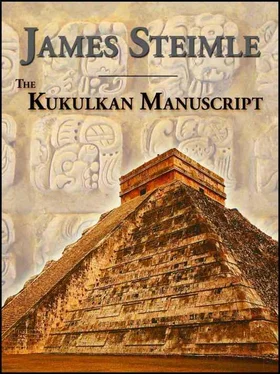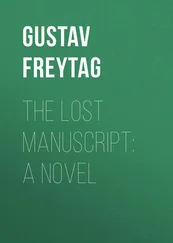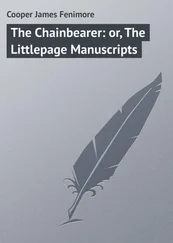James Steimle - The Kukulkan Manuscript
Здесь есть возможность читать онлайн «James Steimle - The Kukulkan Manuscript» весь текст электронной книги совершенно бесплатно (целиком полную версию без сокращений). В некоторых случаях можно слушать аудио, скачать через торрент в формате fb2 и присутствует краткое содержание. Жанр: Прочие приключения, на английском языке. Описание произведения, (предисловие) а так же отзывы посетителей доступны на портале библиотеки ЛибКат.
- Название:The Kukulkan Manuscript
- Автор:
- Жанр:
- Год:неизвестен
- ISBN:нет данных
- Рейтинг книги:5 / 5. Голосов: 1
-
Избранное:Добавить в избранное
- Отзывы:
-
Ваша оценка:
- 100
- 1
- 2
- 3
- 4
- 5
The Kukulkan Manuscript: краткое содержание, описание и аннотация
Предлагаем к чтению аннотацию, описание, краткое содержание или предисловие (зависит от того, что написал сам автор книги «The Kukulkan Manuscript»). Если вы не нашли необходимую информацию о книге — напишите в комментариях, мы постараемся отыскать её.
The Kukulkan Manuscript — читать онлайн бесплатно полную книгу (весь текст) целиком
Ниже представлен текст книги, разбитый по страницам. Система сохранения места последней прочитанной страницы, позволяет с удобством читать онлайн бесплатно книгу «The Kukulkan Manuscript», без необходимости каждый раз заново искать на чём Вы остановились. Поставьте закладку, и сможете в любой момент перейти на страницу, на которой закончили чтение.
Интервал:
Закладка:
“What’s that?” Porter said. He swallowed the rest of his hot chocolate and put the cup on the end of the table for a refill, never taking his eyes off of Kinnard’s bald spot. “How’d Ulman find a book that wasn’t cemented together? Was it a scroll?”
Kinnard kept his eyes on the table, only looking up once in awhile. “ You would come up with that, wouldn’t you.”
“Excuse me?”
After a deep breath, Kinnard spoke. “You’re a…a member of the LDS church, aren’t you?”
“I…am,” Porter said, his head bobbing with growing curiosity.
As if to divert any awkward feelings, Kinnard asked, “What does that stand for again?”
“Well, the full name is the Church of Jesus Christ of Latter-day Saints. It’s that last part which differentiates us from other churches…by name anyway.”
“I had an LDS friend growing up in Illinois. Learned it was wrong to call you ‘Mormons’.”
Porter smiled. “Well, it’s not bad. Most people don’t understand where the term ‘Mormon’ came from. You know that along with the Bible we read the Book of Mormon. Evidently, those who didn’t belong to the church gave us the title ‘Mormons’ based on our scriptures. It may have been an insult a long time ago. Some might even have negative feelings toward the use of the nick-name, but I don’t really care. It’s almost a household word now. Think about it. What do you see in your head when you hear the word ‘Mormon’?”
“White shirts and ties on bicycles.”
“Right,” Porter said, pointing a finger.
Bruno delivered the coffee with a smile and disappeared again. Neither of the customers seemed very intent on eating.
Porter went on. “Mormon missionaries. Clean cut, young, smiling, nice guys that you’d never expect to commit a crime. Kind of the ideal young man.” He shifted in his seat. “I don’t see any insult in that image. If the name brings to mind an old-fashioned all-American reflection, then I don’t mind the name.”
Kinnard nodded. “As a Mormon, then, you believe in transoceanic contact between the Old World and the New, prior to, let’s say, the Viking arrival ‘round the year 1000.”
Porter nodded.
“Well, then you should love this codex.”
“Why…does it back up that argument?”
Leaning forward in his chair, Kinnard said softly, “Ulman’s codex may be something of a Rosetta Stone. The book is written in two languages on every page. That’s a good thing, because Dr. Ulman can barely make out one of the languages. The second he can’t decipher at all. But he says it’s only guesswork at present.”
“You’re giving the book to me,” said Porter.
“You couldn’t be worse off, Porter,” said Kinnard. “Not unless you’d been shot and left to die, anyway. Ulman’s a good man…and he’s my friend. I think he’ll understand after he gets back. You will of course need to give Ulman credit for the physical discovery.”
Porter imagined the writing on this Mesoamerican ‘Rosetta Stone.’ All students of Ancient Near Eastern Studies were familiar with the real Rosetta Stone, the big slab of black basalt found in 1799 by an unknown person. The rock contained a text praising an Egyptian king, Ptolemy V Epiphanes (203–181 BC), written in Egyptian Hieroglyphics, then in Demotic, which some termed New Egyptian or Egyptian Short Hand, and then in Greek. Before 1822, scholars had not yet conquered the Egyptian writing system. But in September of the same year, a Frenchman by the name of Jean-Francois Champollion, realizing the message was being repeated in all three languages and finding specific names in each text, presented a paper deciphering the obscure glyphs for the first time to the Academie des Inscriptions. The result was a blaze of excitement concerning Egyptology throughout Europe. Champollion changed the world, an opportunity that both Porter and Kinnard could only hope for.
So why was Kinnard giving Dr. Ulman’s find to Porter for study?
“A new Mesoamerican script?” said Porter.
“Ulman could read a little of the first set of characters on the page. Maybe the language is just an older version of characters common to the area, I don’t know; I don’t read any of those languages. But that was the writing Ulman could read to some degree.”
Porter blinked and thought he misunderstood.
“Ulman couldn’t read the second language on the page…” Kinnard said.
They both looked straight into each other. Porter felt the room warm around him. Perhaps it was his own blood pulsing faster just beneath his skin.
“…but…I thought I recognized letters of the second script,” said Kinnard. “ You might be able to decode it, Porter.”
“But I…don’t know any ancient American languages.”
“Neither do I.”
CHAPTER SIX
April 1
3:00 p.m. PST
Erma Alred closed the door behind her. The room had far too many people in it for a casual discussion between Professor Masterson and herself as she had planned. But as the head of the Department of Ancient History and Anthropology at Stratford University, Dr. Masterson could do what he wanted.
“Good morning Ms. Alred,” Masterson said with a bloated smile as he stood to shake her hand, “Right on time as usual.”
Evidently the other four men in the room had come early, though she hadn’t the faintest idea why. They watched her as she shook Masterson’s hand. She eyed them closely, but also casually. She recognized a few faces, she thought, but couldn’t be sure.
Masterson raised a hand to the only empty chair around the rectangular table. “Have a seat.”
“Thank you,” she said, sitting down. The room smelled like old pipe smoke, memories of the professors who first ran Stratford University. Masterson’s cordiality confused her. Never before had he treated her with so much respect. She had come to the office hoping to discuss her proposal for her dissertation, which she’d been working on since last semester. She had plenty of time to change it, so she wasn’t pressured with that.
But Alred had learned that Masterson, who served as her supervising professor, was a difficult man to sway from his own stubborn opinions. He had plenty of ideas and was sick of being kicked around by other professors who thought they had more efficient or effective plans. Bitterness had swallowed him long ago and kept him boiling in a stomach of acidic antagonism. As he had told her many times, he hadn’t climbed his way to the top, he’d fought his way. He didn’t expect others to follow his example and rather hoped they didn’t.
Alred looked forward to working in a university back east, if at all possible, when her studies ended at Stratford. Masterson said he’d made up his mind to mold her into a killer in the field. She could go far in Mesoamerican scholarship, if she knew what she was doing.
Alred never worried much about her future. Having been raised by a fine instructor of mathematics, Alred found there was a logical side to everything. The anxieties of most people were unnecessary. Those who worried about relationships, for example, usually caused more problems fretting over negative possibilities than would have occurred naturally. Stress leads to self-fulfilling prophecies, Alred told her friends. Most people didn’t realize that. General ignorance and self-promoted apathy was the greatest problem in the world, she believed. Thus, Alred didn’t cope well with those who were always coming up with excuses. She just shook her head and wondered why people didn’t take control of their lives instead of letting others boss them around. Pro-activity led Alred to higher levels of success than most others would be able to enjoy.
Masterson turned quickly to the other men in the tight room. Indicating each with a relaxed hand, he said, “Ms. Alred, this is Dr. Goldstien, Dr. Arnott, Dr. Wilkinson, and Dr. Kinnard.”
Читать дальшеИнтервал:
Закладка:
Похожие книги на «The Kukulkan Manuscript»
Представляем Вашему вниманию похожие книги на «The Kukulkan Manuscript» списком для выбора. Мы отобрали схожую по названию и смыслу литературу в надежде предоставить читателям больше вариантов отыскать новые, интересные, ещё непрочитанные произведения.
Обсуждение, отзывы о книге «The Kukulkan Manuscript» и просто собственные мнения читателей. Оставьте ваши комментарии, напишите, что Вы думаете о произведении, его смысле или главных героях. Укажите что конкретно понравилось, а что нет, и почему Вы так считаете.












